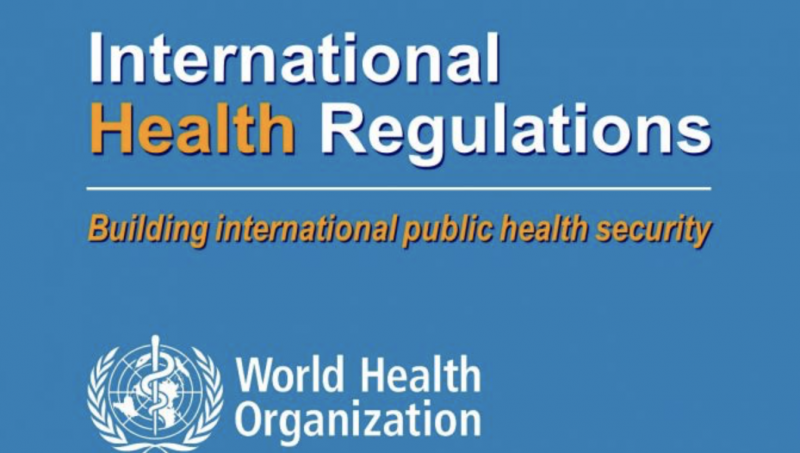
Statement on the eighth meeting of the International Health Regulations (2005) Emergency Committee regarding the coronavirus disease (COVID-19) pandemic
IHR MEF
July 16, 2021
The eighth meeting of the Emergency Committee convened by the WHO Director-General under the International Health Regulations (2005) (IHR) regarding the coronavirus disease (COVID-19) took place on Wednesday, 14 July 2021 from 11:30 to 16:00 Geneva time (CEST).
Proceedings of the meeting
Members and Advisors of the Emergency Committee were convened by videoconference.
The Director-General welcomed the Committee and reiterated his global call for action to scale up vaccination and implement rationale use of public health and social measures (PHSM). He thanked the Committee for their continued support in identifying key challenges and solutions that countries can use to overcome the issues posed by the pandemic.
Representatives of the Office of Legal Counsel (LEG) and the Department of Compliance, Risk Management, and Ethics (CRE) briefed the members on their roles and responsibilities. The Ethics Officer from CRE provided the Members and Advisers with an overview of the WHO Declaration of Interest process. The Members and Advisers were made aware of their individual responsibility to disclose to WHO, in a timely manner, any interests of a personal, professional, financial, intellectual or commercial nature that may give rise to a perceived or direct conflict of interest. They were additionally reminded of their duty to maintain the confidentiality of the meeting discussions and the work of the Committee. Each member who was present was surveyed and no conflicts of interest were identified.
The Secretariat turned the meeting over to the Chair, Professor Didier Houssin. Professor Houssin also expressed concern over the current trends with the COVID-19 pandemic and reviewed the objectives and agenda of the meeting.
The Secretariat presented on the global epidemiological context, shared updates on travel guidance and measures taken by countries and provided an overview of the World Health Assembly 74’s decisions and resolutions that relate to the role and functioning of the IHR Emergency Committee. The Secretariat also highlighted factors driving the current situation including:
- variants of concern,
- inconsistent application of public health and social measures,
- increased social mobility, and
- highly susceptible populations due to lack of equitable vaccine distribution.
The Committee discussed key themes including:
- global inequitable access to COVID-19 vaccines which is compounded by use of the available vaccines beyond SAGE recommended priority populations and the administration of booster doses while many countries do not have sufficient access to initial doses;
- the need for technology transfer to enhance global vaccination production capacity,
- the importance of adapting PHSM to epidemiological and socio-economic contexts and to diverse types of gatherings,
- challenges posed by the lack of harmonization in documentation requirements for vaccination and recovery status for international travel,
- threats posed by current and future SARS CoV-2 variants of concern, and
- efforts made by some States Parties to apply a risk-management approach to religious or sports-based mass gathering events.
The pandemic remains a challenge globally with countries navigating different health, economic and social demands. The Committee noted that regional and economic differences are affecting access to vaccines, therapeutics, and diagnostics. Countries with advanced access to vaccines and well-resourced health systems are under pressure to fully reopen their societies and relax the PHSM. Countries with limited access to vaccines are experiencing new waves of infections, seeing erosion of public trust and growing resistance to PHSM, growing economic hardship, and, in some instances, increasing social unrest.